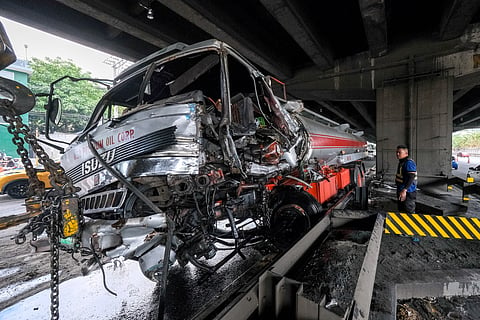
- NEWS
- the EDIT
- COMMENTARY
- BUSINESS
- LIFE
- SHOW
- ACTION
- GLOBAL GOALS
- SNAPS
- DYARYO TIRADA
- MORE

The World Day of Remembrance for Road Traffic Victims (WDR) is an international day of observance dedicated to remembering the millions of lives lost in road traffic crashes each year.
Observed annually on the third Sunday of November, WDR aims to acknowledge the suffering of those injured and the grief of families, communities, and nations dealing with the sudden loss of loved ones. This day, initiated by road victim advocates in 1993 and later adopted by the United Nations in 2005, also emphasizes the urgent need to improve road safety worldwide.
The relevance of WDR in the Philippines is particularly significant, given the country’s troubling road safety record. According to the World Health Organization, over 12,000 Filipinos die annually in road crashes, with even more suffering severe injuries.
These statistics highlight an ongoing crisis on Philippine roads, where congestion, poorly maintained infrastructure and inadequate traffic laws contribute to road hazards. Additionally, traffic enforcement in many areas is insufficient, and the lack of pedestrian-friendly infrastructure places vulnerable road users — such as pedestrians, cyclists and motorcyclists — at higher risk.
The increasing number of private vehicles, coupled with limited public transportation options, has exacerbated this issue, resulting in more road traffic accidents and casualties.
In the Philippine context, WDR serves as a somber reminder of the lives lost and affected by traffic incidents and reinforces the need for comprehensive policy reforms. The day presents an opportunity for the government, civic organizations and communities to come together to discuss and promote effective measures for road safety. These may include stricter enforcement of traffic laws, public education campaigns on responsible driving, and infrastructure improvements like well-lit pedestrian lanes, speed bumps and bike lanes.
Moreover, WDR underscores the importance of supporting victims and their families. In many cases, road crashes leave survivors with permanent disabilities and families with substantial financial burdens due to medical expenses and loss of income. Advocating for stronger social and healthcare support systems can ease the hardships faced by affected families, offering a means for rehabilitation and recovery.
As the Philippines observes WDR, the day becomes a powerful platform for raising awareness, advocating for safer roads, and fostering a collective responsibility to ensure that road safety measures are prioritized.
Ultimately, the remembrance day is not only about honoring victims but also about committing to a future where Philippine roads are safer for all.
